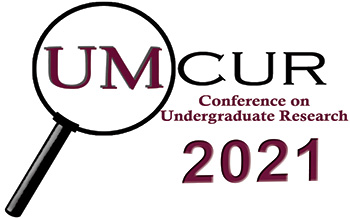Project Type
Presentation
Faculty Mentor’s Full Name
Peter McDonough
Faculty Mentor’s Department
Davidson Honors College
Abstract / Artist's Statement
Intercultural exchange programs have been shown to increase critical thinking skills, cross-cultural communication abilities, and provide intercultural perspectives to participants. Unfortunately, fewer than 11% of undergraduate students study abroad, which means an majority of college students are not able to participate in the life-changing experiences that come with global immersion. This is largely due to the many barriers to access that currently exist for these programs, including lack of finances, lack of awareness, work and family commitments, and concerns about timely graduation. Another current concern is the COVID-19 pandemic, which halted a large number of in-person exchanges in 2020 and 2021. One way to increase the number of students who are able to engage in intercultural experiences is by expanding the typical definition of studying abroad to include Alternative Exchange Programs (AEPs) such as virtual and domestic exchanges. After conducting interviews with past participants and conducting an advisor and student survey, we have identified the issues of access surrounding in-person study abroad. AEPs can address these barriers and still offer meaningful experiences reflective of intercultural exchange values. AEPs provide students with opportunities to enhance their intercultural communication skills, bolster their resume, and shift their cultural perspectives. We have built an online toolkit that includes personal testimony from past participants in such experiences, as well as resources to help inform prospective students of their options and guide them in deciding whether to participate in AEPs. This toolkit will empower students to increase their awareness of UM’s AEP offerings that best suit their needs. While AEPs offer a unique solution for the challenges of traveling in-person during the COVID-19 pandemic, AEPs are a tool in the toolbox of intercultural education, offering a supplement, not a substitute, to in-person international programs.
Category
Franke Global Leadership Initiative
video zoom recording
GMT20210408-152358_Recording.m4a (11141 kB)
audio only
Planning Beyond the Pandemic: Assessing the Value of Alternative Exchange Programs
Intercultural exchange programs have been shown to increase critical thinking skills, cross-cultural communication abilities, and provide intercultural perspectives to participants. Unfortunately, fewer than 11% of undergraduate students study abroad, which means an majority of college students are not able to participate in the life-changing experiences that come with global immersion. This is largely due to the many barriers to access that currently exist for these programs, including lack of finances, lack of awareness, work and family commitments, and concerns about timely graduation. Another current concern is the COVID-19 pandemic, which halted a large number of in-person exchanges in 2020 and 2021. One way to increase the number of students who are able to engage in intercultural experiences is by expanding the typical definition of studying abroad to include Alternative Exchange Programs (AEPs) such as virtual and domestic exchanges. After conducting interviews with past participants and conducting an advisor and student survey, we have identified the issues of access surrounding in-person study abroad. AEPs can address these barriers and still offer meaningful experiences reflective of intercultural exchange values. AEPs provide students with opportunities to enhance their intercultural communication skills, bolster their resume, and shift their cultural perspectives. We have built an online toolkit that includes personal testimony from past participants in such experiences, as well as resources to help inform prospective students of their options and guide them in deciding whether to participate in AEPs. This toolkit will empower students to increase their awareness of UM’s AEP offerings that best suit their needs. While AEPs offer a unique solution for the challenges of traveling in-person during the COVID-19 pandemic, AEPs are a tool in the toolbox of intercultural education, offering a supplement, not a substitute, to in-person international programs.
